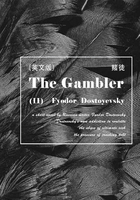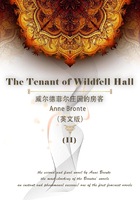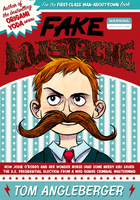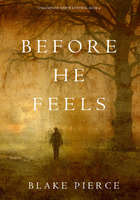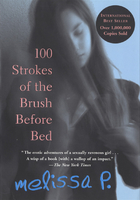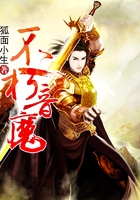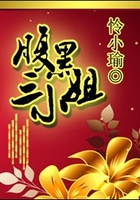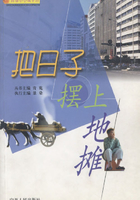The Pyramid
It was really summer, but the rain had fallen all day and was still falling. The weather can best be described by saying it was the kind reserved for church fêtes. The green leaves were being beaten off the trees by the steady downpour and were drifting about in the puddles. Now and then there would come a gust of wind so that the trees moaned and tossed their arms imploringly, though they had been rooted in our soil long enough to know better. Darkness fell early—indeed there had seemed little light all day, so that the process was slow and imperceptible. But when it was complete, the darkness was intense beyond the street lights and the rain still fell through it. I had played the piano until my head sang—pounded savagely and unavailingly at the C Minor Study of Chopin which had seemed, when Moisewitch played, to express all the width and power of my own love, my own hopeless infatuation. But Imogen was engaged to be married, that was the end.
So I lay, dry-mouthed, and endured. The only thing that pulled me out of myself every now and then was the sudden sound of blown water, dashed over the panes like gravel. Eighteen is a good time for suffering. One has all the necessary strength, and no defences. Midnight clanged from the tower of the church, and before the twelfth stroke had sounded, the three sodium lights in the Square went out. In my head, Imogen drove his green, open Lagonda across the downs, her long, reddish hair flying back from her pale face—she was only five years older than I was. I ought to have done something; and now it was too late. I stared at the invisible ceiling, and she drove; and I saw him, so secure, so old, so huge in his ownership of the Stilbourne Advertiser, impregnable. I heard his gnatlike voice and suddenly he was struck by lightning. I saw it branch down, there was a puff of smoke and he was gone. Somehow, the lightning had rendered Imogen insensible. I was carrying her in my arms.
I leapt up in bed, staring at the window, and clutching the counterpane to my chin. The noise had been so loud, so sharp. It had rapped the glass almost to breaking point, as if someone had used an air-gun. I had hazy thoughts of blown branches or dislodged tiles but knew it had been neither—and there it was again, rap! I huddled out of bed, my hair pricking at the strangeness, went to the window and peered down into the Square. There was another rap close by my face, so that I ducked, then peered forward; and just outside the railings that separated our cottage from the cobbles round the Square I could see a white face glimmering. I eased up the sash and immediately the wind whipped the chintz curtains in my face.
"Oliver! Oliver!"
A wild hope made my heart turn over; but it was not Imogen's voice.
"What is it?"
"Not so loud!"
The face bent down by our iron gate, opened it cautiously, then swam up the brick path and stopped under my window.
"Who is it?"
"It's me. Evie. Evie Babbacombe. Can't you see?"
"What—"
"Don't wake anybody up. Come down carefully. Dress. Oh please be quick! I'm—"
"Wait a minute."
I ducked back into the room and fumbled around for my clothes. I had seen Evie often enough, and for years; but I had never spoken to her. I had seen her sliding along the pavement on the other side of the Square with that unique walk of hers, body still, only the legs below the knees pacing past each other. I knew she worked next door, in Dr. Ewan's reception room; knew that she had a long bob of glossy black hair, and a figure that rearranged the blue and white cotton dress—knew she was the Town Crier's daughter and came from the tumbledown cottages of Chandler's Close. But of course we had never spoken. Never met. Obviously.
I tiptoed down the stairs, in the dark, avoiding the third tread, and hearing a mellow snore from my parents' bedroom. I lifted my mackintosh from its peg in the hall, then unchained, unbolted and unlocked the front door as carefully as if I had been a burglar at a safe. Evie was huddled close to the other side of it.
"You've been ages and ages!"
She was making a curious singing noise with her teeth. This close to, I could see that she had a scarf over her hair and was clutching her coat to her with both hands.
"Been as quick as I could. What d'you want?"
"Bobby Ewan's in the woods with the car. He can't move it."
Whatever vague surmises or expectations had been floating on the current of my blood vanished abruptly. Bobby Ewan was Dr. Ewan's son. We were neighbours, and I did not like him. I only envied him his boarding school, his prospective promotion to Cranwell, and most of all, his red motor bike.
"He's nothing to do with me. Why doesn't he try Henry Williams?"
"Oh dear."
She sagged a little, swaying forward against me. Perhaps behind the clouds the moon had risen; or perhaps the clouds themselves were rising. But for whatever cause, there was a diffused light now, faint, and seeming to come from everywhere at once, or be inherent in the nature of the air. By this light I could see her in more detail. Her face was very white, mouth and eyes like black plums, with straggles of hair smeared across them. Water ran on her and dripped from her. She snivelled, gripped my biceps with her fingers, bowed her head against my chest.
"My heel came off, too. What Dad'll—"
She jerked back her head in the beginnings of a sneeze and clapped both hands over her mouth. She convulsed silently. Farted.
"Pardon."
The plums glanced up at me over her hands. Under them she gave an embarrassed giggle.
"Look, Evie—what d'you want me to do?"
"Help him get the car out of the pond."
"The pond!"
"You know where—straight on through the woods at the top of the hill—Oh please—Olly! Nobody must know. It'ud be awful—"
"That's between him and his father—silly young ass!"
Robert was three months older than I was, and Evie, three months younger.
"You don't understand Olly—it isn't his father's car!"
"Serve him right then."
"Oh Oliver—I thought you would!"
She came forward, close against me. Her breasts pressed against me; and as if she could exhale it at will, I caught a whiff of scent that stopped my breath. Her coat hung wetly and there wasn't much clothing under it.
"I got to be in by midnight—"
"It's past, now."
"I know. If Dad finds out—"
For all the chill and wetness of the night, my heart had begun to go thud, thud. My arms put themselves round her. She was shivering steadily.
"All right."
She squeezed my arms.
"Oh Olly you are a real sport!"
The bottom one of her three plums lifted and gave me a cold peck. She pushed me away.
"Be quick. You could go on your bike."
"Haven't got a light. I'll run—and Evie—"
"What?"
"Shall we—I mean—we could—"
She seemed to rearrange herself—put one hand up as if she would push back her draggling hair.
"We'll have to see, won't we?"
Then she was away, hobbling through the Square and thinking up her story.
I made sure I could get back in, carefully closed our iron gate and tiptoed away. When I had left the house far enough behind me, I began to run, past the Town Hall and down the High Street towards the Old Bridge. The gusts seemed lighter but there was still plenty of rain and by the time I was passing Henry Williams's garage it was running from my face down my neck. Yet for all my disinclination to help Robert Ewan I was happy and excited. My mind's eye saw, not the wet and draggled Evie, her face reduced to three plums in a patch of white, but Evie in her summery dress, pacing along on legs which—though some might think they were too short for perfect beauty—nevertheless reached the ground, and would do. Would do for what? The answer seemed obvious in Evie's case. She was our local phenomenon, and every male for miles round was aware of her. Perhaps it was not the breathlessness of perpetual sex that kept her lips always apart and everted, but her nose, so inadequate for breathing through, yet so perfect for pertness. Her hair would toss cloudily in a dark, shoulder length bob, as she paced, thighs motionless, legs only moving beneath the knee, her body trim and female in its walking-out uniform—a cotton frock, white socks and sandals. I had never had the luck to inspect her closely in daylight, but my furtive glances, as she passed had acquainted me with her eyelashes, too. Pounding through the darkness and rain towards the Old Bridge, I found myself thinking of paint brushes—not the delicately smoothed instrument of the artist, but the childhood one, scrubbed so hard in the dish of colour that the matted hairs are spiky and stick out all round. As I thought of those furtively glimpsed eyelashes—no, those handfuls of small paint brushes that flickered so delectably round Evie's eyes—I pounded harder. I never noticed the rise to the crest of the Old Bridge. Evie had none of Imogen's sacred beauty. She was strictly secular.
Nevertheless, the steep hill up to the woods brought me to a walk, and my senses. After all there was Bobby Ewan with his motor bike and his famous school and conscious superiority. There was Sergeant Babbacombe, too. When I thought of the sergeant, I stopped dead. If he knew that I had kissed—been kissed by, at anyrate—his daughter after midnight, he was likely to break my neck. Worse, speak to my parents. The courses were comparable. Sergeant Babbacombe, caretaker of the Town Hall, Keeper of the Pound, Beadle, Town Crier and any number of other offices left him by our derelict history; Sergeant Babbacombe might be a figure of fun in his eighteenth-century uniform as Town Crier; thinking of him as her father, I saw rather his huge chest, meaty fists and plethoric face with its eyes so belligerently popping. I winced as I inspected for the first time an age-old question. How do such fathers have such daughters?
Then—as if she were present—I caught in my nostrils that sudden whiff of scent, and the Sergeant diminished to nothing. I hurried on up the hill, my wet trouser legs stuck to my shins, my hair dripping into my eyes. Still, there was less rain and less wind; and before I plunged into the tunnel of trees I saw a bright patch above them where the moon was trying to break through. Behind me in the valley, the church clock struck one.
There was a little more light as I neared the open area by the Leg-O'-Mutton pond. I could make out the shape of a two-seater near the edge furthest from the road, but surrounded by water. Robert Ewan moved out of the darkness under a tree and stood in the road, waiting for me.
"Young Olly?"
As I came close, I saw and heard that he was shivering more woefully than Evie; but he was making a determined attempt to ignore it. He was slight and bony, three inches taller than me, with a thatch of sandy hair and the Duke of Wellington's profile. He was clutching a mackintosh to him; and a pair of white, naked knees showed below it. Below the knees again and all down his shins were black marks, and below the marks, crumpled socks. He only had one shoe on.
"Yes it's me. Christ. You've been and gone and done it haven't you?"
"What kept you so long for God's sake? Well now you are here, let's get moving."
"Where's your shoe? And your trousers?"
"Sunk, laddie," said Robert, attempting nonchalance but having it interrupted by a sudden clatter of teeth. "Sunk without trace."
"I know that car! It's Bounce's car! Miss Dawlish's car!"
Robert turned the duke's profile towards it.
"Never mind that. Let's decide what to do."
"But why—?"
Robert took a step forward and lowered his face towards me.
"It's none of your business. But if you want to know, I was giving our young friend Babbacombe a lift over to the hop at Bumstead. I couldn't take her on the bike in this weather could I? So I borrowed Bounce's car for an hour or two. She wouldn't mind would she? Only there's no need for you to tell her."
I understood that the son of Dr. Ewan couldn't take the daughter of Sergeant Babbacombe to a dance in his father's car. Didn't have to think. Understood as by nature.
"I see."
"Satisfied?"
He stood in the road, dancing and shivering, while I took off my shoes and socks. The water was very cold, but shallow. Robert, being Robert, had not realized that there are two ways out of a pond and he had spent his time trying to shove the car backwards up hill when with half the energy he could have pushed it straight through. We got it out on the road, and while I sat on the running board and put on my socks and shoes, Robert fiddled with the plugs and wrestled with the starting handle.
By the time I was tying my shoelaces he had given up, and stood, his profile between me and the moon.
"It's no good, young Oliver. You'll have to push."
"Who? Me? Why don't you push the damn thing yourself?"
"Be reasonable, laddie. Someone's got to steer. You don't drive, do you? Besides, you're heavier than I am."
"Well—strike me pink!"
It was true all the same. Robert might be three inches taller than I was, and act always as if the three inches were twelve, but he was only half as wide. Suddenly I was shaking with rage.
"Well—Christ! You can talk! Driving the bloody car slap into the bloody pond!"
I got up and savaged my hair.
"Temper," said Robert. "If you want to know, I wasn't driving it."
"Then how the hell—"
"Do you want to stay here all night? However—we were pulled off the road under that tree up there for a spot of slap and tickle. Which reminds me—Half a mo'."
He ran off round the pond and up to the tree at the top of a slight rise, came back with his arms full.
"Floorboards."
"What the Devil?"
He opened the door of the two seater and started putting the boards back in. While he did this he spoke sometimes over his shoulder, as to a company of troops that was being jollied into an arduous but not dangerous operation.
"Not much room in these machines. Our young friend was sitting in the front seat and I took the boards out so that I could stand on the ground. Got it? Only we ran away—the old bus did. I must have sort of jerked the handbrake off with me arse, somehow. Now then, young Olly, heave O!"
It was possible, I found, by turning my back on the car, leaning against it and then thrusting with both legs, to move it up the road. Once it was moving I turned round and shoved at an angle of forty-five degrees to the horizontal. This was not too difficult. But then, without warning the car stopped dead, so that I fell spreadeagled on the rumble seat.
"Oh my guts!"
"Footbrake's a bit fierce," said Robert. "Hold on a moment. Olly. I'm dam' chilly. There's no denying it. Now we're stopped I'll just see if the old girl keeps a rug in the back, there."
"You keep driving! If this thing stops again, I'm walking home!"
I could see his profile round the side of the car and he was getting out.
"I'm perishing."
"Well, perish!"
It was mutiny. Silently Robert got back in, his teeth clattering, his shoulders, even his hands shaking. We moved off again.
I muttered.
"Bloody car. Bloody fool. Bloody footbrake—why the hell didn't you put the brake on up by the tree?"
Robert had reached his own limit. He gave a kind of whinny of rage.
"Have you ever tried running backwards down a slope with your trousers round your ankles?"
"Bloody girl, then. Why didn't she put on the brake?"
"How could she, with her feet up on the windscreen?"
I saw that. I pushed, grunting now and then.
"Keep moving, Olly! That's better. We're nearly at the rise. Still—she's a really sporty girl, that young Babbacombe, I give her that."
"Why?"
"She tried to steer."
Suddenly the weight of the car decreased. It stopped, as I heard Robert pull on the handbrake.
"What the—"
"We're there. Get in."
We were at the top of the hill where the road led out of the woods down into Stilbourne. I could make out the church tower, the huddle of houses and dark shapes of trees. I climbed in beside Robert, and settled myself. I muttered, he shivered.
"God knows how I'll push her up the High Street!"
"You're not going to have to," said Robert, the duke's profile lifted against the sky, "because there might be a copper about. Here we go!"
One hundred and twenty seconds later I had to admit that either Robert's school, or his family, or possibly even Chums and The Boy's Own Paper had given him some standards that I found not wholly contemptible. With no lights, and no engine, we leapt off the top of the Old Bridge like ski-jumpers. We shot up the High Street and across the concrete apron of Williams's garage, turned right between two sheds, then left to the open space where Robert had found the car the evening before, all under the impetus of gravity. Even then we stopped with a jerk that flattened my face against Bounce's windscreen. When I got my breath back I felt an unwilling respect for him; but we were too angry with each other for anything but the stiffest and most glacial farewell. Without speaking, we tiptoed resentfully round the Square. Robert stopped outside our gate, turned to me, and whispered coldly down from an extra twelve inches.
"Well. Thank you for your help."
I whispered back.
"Not at all. Don't mention it."
We parted, and set ourselves to our individual problems of noiseless entry. The church clock struck three.
The sun woke me, as it crawled on to my face; and instantly I remembered everything—the car, Robert, the three plums, one of them lifted, a whiff of scent. I knew, with youth's intuitive optimism, that something was not ended. Something had begun.
And there was more. The window of our bathroom not only looked out over our garden, but the Ewans's garden too. It was possible, even probable, that I should see Robert keeping fit there, and be able to crow over him. Grinning, I hurried to the bathroom. Sure enough, as soon as I looked out of the window, I saw him trot down the path, in shorts and singlet, beating the air fiercely with the padded gloves. He went trotting to the punchball rigged in the stables and struck it smartly.
"Haa!"
He danced away from it, then round it, then in again.
"Haa!"
The punchball made no reply, only quivered a bit each time he hit it. He danced away, dared it to come after him, then trotted off down the path with the handsome movements of the trained athlete, knees up, gloves up, chin down. As he turned to come back I saw that his shins were heavily armoured with white sticking plaster. He went back to the punchball. I opened the bathroom window, lathering myself vigorously, and began to laugh. Robert faltered, then attacked the punchball with fierce in-fighting.
"Any more for the Skylark?"
This time Robert did not falter. He ducked and wove. As I scraped away with my new razor, I sang raucously.
"We joined the nay-vee to see the world—"
Robert stopped boxing. I stared cheerfully at the brow of the hill to the north of Stilbourne, the rabbit warren spilt down the slope, the clump of trees at the top, and continued to sing.
"—we saw the pond!"
Below the immediate line of my vision, I could see that Robert was giving me a Look. It was the sort of Look that kept the Empire together, or quelled it at least. Armed with that Look and perhaps a riding crop, white men could keep order easily among the clubs and spears. He walked with great dignity into the house, duke's profile high, attention straight ahead. I laughed loud and long and savagely.
My mother expostulated fondly at breakfast.
"Oliver dear, I know you've passed all your examinations and you're going to Oxford, and heaven knows I'm glad for you to be happy—but you were making a dreadful noise in the bathroom! Whatever will the neighbours think?"
I answered her indistinctly.
"Young Ewan. Laughing at him."
"Not with your mouth full, dear!"
"Sorry."
"Bobby Ewan. It's such a pity that you—Still he's been away at school most of the time." This telegraphic style was entirely comprehensible to me. It meant that my mother was regretting the social difference between the Ewans and ourselves. She was thinking too of the incompatibility that had magnified the difference and exacerbated it. As small children, socially innocent, so to speak, we had played together; and I knew things about that play which had reached neither Mrs. Ewan nor my mother. We had hardly been out of our respective prams.
"You're my slave."
"No I'm not."
"Yes you are. My father's a doctor and yours is only his dispenser."
That was why I pushed him off the wall into the Ewans's cucumber frame, where he made a very satisfactory crash. Not surprisingly we drifted apart after that, and what with school and motor bikes and careful parents, the most we ever did was to snipe at each other with our air guns, aiming always to miss. Now I had kissed Evie Babbacombe—well, more or less—and had seen Robert make a fool of himself.
"Oliver, dear—I do wish you wouldn't whistle with your mouth full!"
After breakfast I went as casually as I could to the dispensary, where my father was making pills, in the old-fashioned way. I stood in the doorway that led from our cottage into the dispensary thinking consciously for the first time how much more like a doctor he looked than staid Dr. Ewan, or the junior partner, reedy Dr. Jones. Such a visit was not usual, and my father looked round ponderously under his heavy brows but said nothing. I leaned against the wall by the door and wondered what excuse I could find for going through into the reception room where Evie would be working. Perhaps, I thought, my father would agree that I needed a thorough overhaul; and indeed, my heart seemed to be acting up in an unusual manner. But before I had got round to saying anything, Evie—who must have been equipped with antennae like my mother—appeared at the end of the passage. She was wearing her blue and white cotton dress, and respectable stockings under her white socks; for of course she could not sit at the desk in the reception room with bare legs. She had one finger on her lips and was shaking her head severely. Her face was different. The orbital area of her left eye was swollen so that on the left side her paint brushes were motionless, their tips projecting in a rigid line. The right side made up for this inactivity; but I had little time to inspect her in detail since she so clearly had a message for me. The finger on the lips, the shaken head—that, I could understand. Don't say anything to anybody about anything! Sensible enough and not really necessary; but those weaving motions with both hands at her throat as if she were trying to avoid strangulation, that hand then so fiercely stabbing with the fore-finger in the general direction of the Square—and now the head, nodding this time, the bob flying—.
Evie stopped moving. Listened. Disappeared into the reception room, the door closing without a sound. My father was still making pills. Casually, I lounged back into the cottage and sat myself at the piano. I played, thinking. It was always a useful cover. What did she want with the Square? And who was going to strangle her? Sergeant Babbacombe was the obvious candidate but was hardly likely to do it in the doctor's reception room. Perhaps she wanted me to go out into the Square so that she could pass me a message—say, in the High Street? It would be hours before she could get away from her desk. But she could make some excuse or other. What was more and more delightfully evident was that Evie Babbacombe wanted to meet me. Not Robert. Me!
I strolled into the Square, and stood, hands in pockets, inspecting the sky. It was bright blue, in a cooperative sort of way. I waited, hoping she would appear and that I could follow her to whatever private place was suitable for such a meeting, but the minutes lengthened, then dragged, and still she did not come. What came at last, was Sergeant Babbacombe. He marched out from under the pillars of the Town Hall and stood at attention, facing the length of the Square to the church. He was carrying his brass handbell and wearing his Town Crier's dress—buckled shoes, white cotton stockings, red knee breeches, red waistcoat, cotton ruffle, blue frock coat, and blue, three-cornered hat. He rang the handbell, staring belligerently over his chest at the church tower. Then he bawled.
"Ho yay, ho yay, ho yay! Lost. In Chandler's Lane, between the chaplofese and Chandler's Close. Hay gold cross hand chain. With the hinitials hee bee. Hand the hinscription 'Hamor vinshit Homniar.' Ther finder will be rewarded."
He rang the bell again, lifted his three-cornered hat towards the sky and uttered the loyal shout.
"God hsave-ther KING!"
He put his hat on, turned right, and marched off with steps of regulation thirty inches towards the corner of Mill Lane to do it all over again. Hee bee! Evie Babbacombe! I saw it all. The cross was to be found and returned to her in strictest secrecy. Not a word about woods or ponds. Probably not a word about a hop at Bumstead. I knew exactly what I was to do.
With that capacity for long and deep calculation which has since proved so beneficial to my country I set myself to evaluate the situation. Evie wanted her gold cross. I wanted Evie. A return to that place where she had proved so accessible to Robert might solve the problem for us both. Panic-stricken and furtive, she would steal off to look herself, given the chance; and my most delicate calculation was involved with getting us both there at the same time. I knew the working arrangements of the Ewans's practice as well as I knew anything. I knew the times that Evie could pretend she had stayed behind to clear up, or sort the files. She might even invent an emergency as cover for her own. Because if some stroller in the woods saw the cross glittering among the twigs and empty acorn cups and turned it in to Sergeant Babbacombe, Evie was due for the shiner to outshine all shiners. She might even qualify, if rumour was not entirely a lying jade, for the sergeant's army belt with its buckle and rows of shining brass studs. When I thought of the rumoured belt and the chance I had of preserving her from it, I felt a twinge of noble sympathy amid my tenseness and excitement.
I went through the cottage and got my bike. I rode down the High Street and very carefully over the Old Bridge, since Sergeant Babbacombe was reciting his piece again on the crest of it. I pushed my bike up the hill, then freewheeled down to the pond.
Everything was different, and the same. The water was still. The woods were still, yet they hummed and buzzed under the sun. There was green dapple, flash of a dragonfly over the water, whirl and dance of flies. I pushed my bike up the rise from the pond and leaned it against the gigantic oak bole. I looked round, then carefully followed the shallow tracks down to the pond. I found no gold cross, but only a muddy shoe. I threw the shoe towards some clear grass in front of a flowering bush and stood, staring down at the brown water. There was nothing for it. This would have to be a proper scientific search, like quartering the desert for a crashed plane. The cross might be—probably was—in the pond. But the sensible thing to do was to look in the easy places first.

